Ko-Tsung Hsu
Fourier Neural Operator Networks: A Fast and General Solver for the Photoacoustic Wave Equation
Aug 20, 2021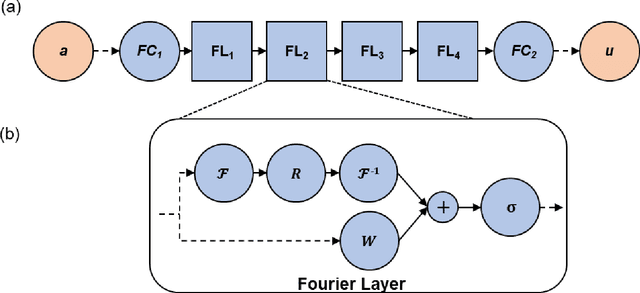

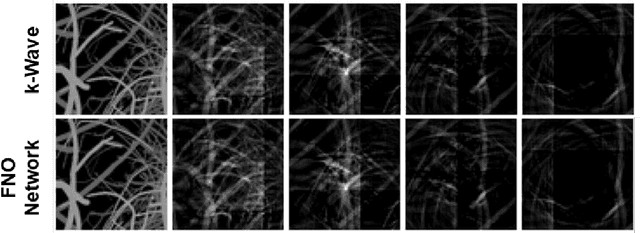
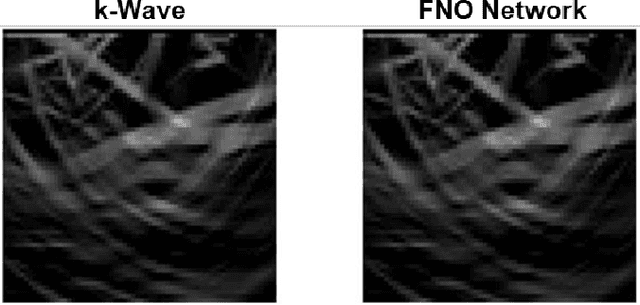
Abstract:Simulation tools for photoacoustic wave propagation have played a key role in advancing photoacoustic imaging by providing quantitative and qualitative insights into parameters affecting image quality. Classical methods for numerically solving the photoacoustic wave equation relies on a fine discretization of space and can become computationally expensive for large computational grids. In this work, we apply Fourier Neural Operator (FNO) networks as a fast data-driven deep learning method for solving the 2D photoacoustic wave equation in a homogeneous medium. Comparisons between the FNO network and pseudo-spectral time domain approach demonstrated that the FNO network generated comparable simulations with small errors and was several orders of magnitude faster. Moreover, the FNO network was generalizable and can generate simulations not observed in the training data.
Dense Dilated UNet: Deep Learning for 3D Photoacoustic Tomography Image Reconstruction
Apr 07, 2021
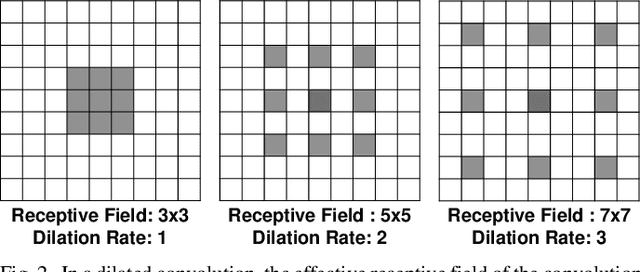
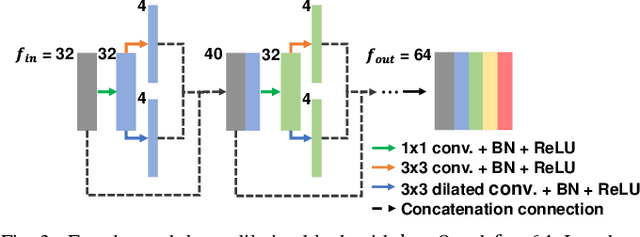

Abstract:In photoacoustic tomography (PAT), the acoustic pressure waves produced by optical excitation are measured by an array of detectors and used to reconstruct an image. Sparse spatial sampling and limited-view detection are two common challenges faced in PAT. Reconstructing from incomplete data using standard methods results in severe streaking artifacts and blurring. We propose a modified convolutional neural network (CNN) architecture termed Dense Dilation UNet (DD-UNet) for correcting artifacts in 3D PAT. The DD-Net leverages the benefits of dense connectivity and dilated convolutions to improve CNN performance. We compare the proposed CNN in terms of image quality as measured by the multiscale structural similarity index metric to the Fully Dense UNet (FD-UNet). Results demonstrate that the DD-Net consistently outperforms the FD-UNet and is able to more reliably reconstruct smaller image features.
 Add to Chrome
Add to Chrome Add to Firefox
Add to Firefox Add to Edge
Add to Edge